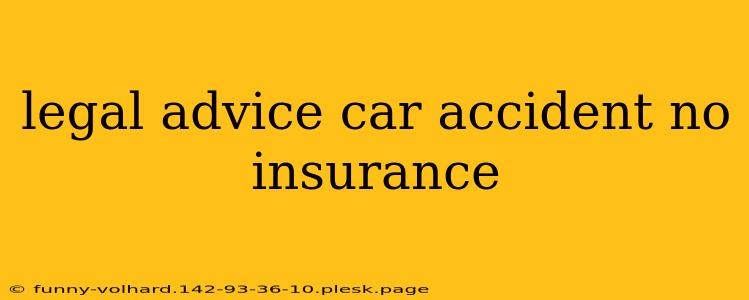Being involved in a car accident is stressful enough, but the situation becomes significantly more complicated when the at-fault driver lacks insurance. This guide provides crucial information on protecting your rights and pursuing compensation when dealing with an uninsured motorist. Remember, this information is for educational purposes and does not constitute legal advice. Consult with a qualified attorney in your jurisdiction for personalized guidance.
Understanding Your Rights After an Accident with an Uninsured Driver
In most jurisdictions, you have legal recourse even if the other driver is uninsured. This typically involves making a claim against your own uninsured/underinsured motorist (UM/UIM) coverage. This is an optional coverage offered by most insurance companies, but it’s highly recommended. It covers your medical bills, lost wages, and property damage resulting from an accident caused by an uninsured or underinsured driver.
Key Steps to Take Immediately After the Accident:
- Ensure Safety: Your first priority is the safety of yourself and others involved. Call emergency services if necessary.
- Document Everything: Take photos and videos of the accident scene, including damage to vehicles, injuries, and any visible evidence of fault. Note the location, time, and weather conditions.
- Gather Information: Obtain the other driver's name, contact information, driver's license number, license plate number, and insurance information (even if they claim to be uninsured). Get contact information from any witnesses.
- Seek Medical Attention: Even if your injuries seem minor, seek medical attention immediately. Document all medical treatments, diagnoses, and ongoing care. This documentation is crucial for your claim.
- Report the Accident: File a police report as soon as possible. The police report serves as official documentation of the accident.
- Contact Your Insurance Company: Notify your insurance company promptly about the accident and your UM/UIM coverage. Follow their instructions carefully.
Pursuing Compensation for Your Losses
Successfully navigating an uninsured motorist claim requires meticulous documentation and a strategic approach.
Proving Liability:
Establishing the other driver's fault is critical. Evidence such as police reports, witness statements, photos, and videos can help demonstrate negligence. If you have dashcam footage, this can be especially beneficial.
Quantifying Your Damages:
This involves meticulously documenting all your losses. This includes:
- Medical Expenses: Keep records of all medical bills, including doctor's visits, hospital stays, medications, and therapy.
- Lost Wages: Provide documentation of missed work and lost income due to the accident. Pay stubs and employment records are essential.
- Property Damage: Obtain estimates for vehicle repairs or replacement costs.
- Pain and Suffering: This is a more subjective element, but strong documentation of your injuries and their impact on your daily life can help support your claim.
When to Consult an Attorney
While you can navigate the uninsured motorist claim process yourself, consulting an attorney is highly recommended. An experienced attorney can:
- Guide you through the complex legal procedures.
- Negotiate with insurance companies on your behalf.
- Represent you in court if necessary.
- Maximize your compensation.
Navigating the Legal Landscape: State-Specific Considerations
Laws regarding uninsured motorists vary significantly by state. Some states have higher minimum insurance requirements, while others have more stringent penalties for uninsured drivers. Understanding your state's specific laws is crucial for protecting your rights.
Conclusion: Protecting Yourself After an Accident
Driving without insurance is illegal and reckless. Protecting yourself from the financial consequences of an accident involving an uninsured driver requires proactive steps, including carrying adequate UM/UIM coverage and seeking legal counsel when necessary. By understanding your rights and carefully documenting your losses, you can significantly increase your chances of receiving fair compensation. Remember to consult with a legal professional for personalized advice tailored to your specific situation and jurisdiction.

